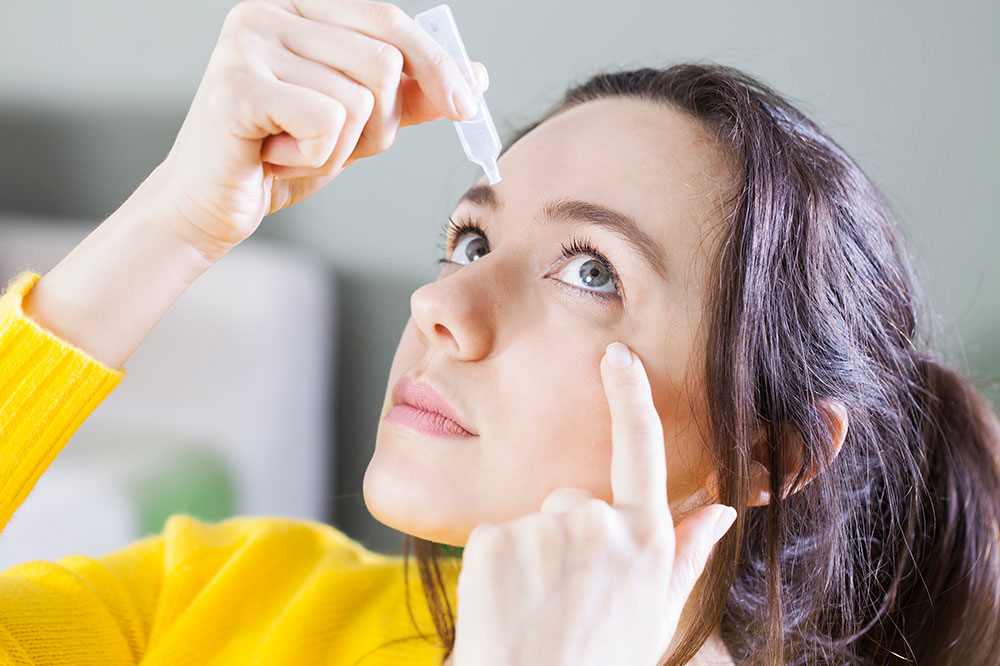6 foods to combat dry eye syndrome

Dry eye syndrome is a common condition that’s known to cause a lot of discomfort with itching, pain, and blurred vision. Many reasons can attribute to having dry eyes, ranging from age to hormonal changes to even weather. While topical and home remedies to deal with dry eyes are aplenty, certain foods can also help. Introducing the following nutrients into your food regime can serve as part of your remedial process.
Fish
Fish is a good source of omega-3 fatty acids that are instrumental in reducing inflammation in the tear ducts of the eyes. Salmon, halibut, herring, tuna, mollusks, and oysters are great vitamin D sources that provide relief from dry eyes.
Meat
In meats, lean beef turkey and the more exotic ostrich meat are treasure troves of zinc that help in maintaining healthy eyes. For those who don’t mind eating organ meats, the liver is a good source of vitamin A that is necessary for treating dry eye syndrome.
Leafy greens
One of the most beneficial nutrients for eye health is vitamin C, and leafy greens that contain folate can prevent the deterioration of vision. Folate-rich leafy greens that also have vitamin C are kale, collards, and spinach.
Chia and flax seeds
If meats are not your preference, chia and flax seeds are great sources of omega-3 fatty acids. Flaxseed oil is so chockful of nutrition that it’s a recommended substitute for fish-based omega-3 supplements.
Eggs
Only a few foods are as diverse and nutritious as the humble egg. This little off-white oval is rich in antioxidants, vitamin A, and beta-carotene—nutrients that are essential for alleviating the discomfort of dry eye syndrome.
Fruits
Citrus-based fruits like berries, oranges, lemon, and grapefruit contain antioxidants and vitamins that help reduce damage to your eyes and keep them healthy.
Natural remedies
Some natural treatments for dry eyes are
Eye drops
This over-the-counter treatment option can moisten the eye to subsequently reduce irritation and inflammation.
Warm compress
Holding a warm compress over the eyes can help loosen up the clogged oils in the glands. Such blockage is the cause of inflammation and discomfort.
Blink more
Such a remedy seems fairly obvious, but we tend to not blink as much while working, which can cause the eyes to dry out. Consciously blinking more can help a great deal.
Hydrate
Drinking enough water helps keep the eyes moist. Even water-rich food can help. Green tea is a good option if you don’t want to drink plain water.
If the irritation and inflammation persist, do consult your doctor for prompt treatment and relief from dry eyes.
In the case of chronic dry eye, doctors may prescribe RESTASIS®. The eye drop contains cyclosporine that helps increase the production of tears in the eye. Common side effects include burning sensations, discharge, redness, eye pain, and blurry vision. RESTASIS® is covered by insurance and can be purchased with coupons. RESTASIS® also provides a savings scheme that offers a 90-day supply for as little as $0.
Another treatment for dry eye is cyclosporine eye drops. It helps decrease the swelling in the eye and promote tear production. The eye drops are prescribed primarily to patients with certain eye conditions. People with dry eyes and presbyopia (blurry near vision) must consider VUITY™ (pilocarpine hydrochloride ophthalmic solution), a prescription eye drop that works by reducing the pupil size to help the individual focus on nearby objects.
Patients with vernal keratoconjunctivitis should consider using Verkazia’s dry eye drops. The prescription drops are topical immunomodulators used to improve the corneal bioavailability of cyclosporine in children and adults. One should also consider Cequa’s drops formulated with cyclosporine ophthalmic solution, which helps increase tear production in patients with dry eyes.





